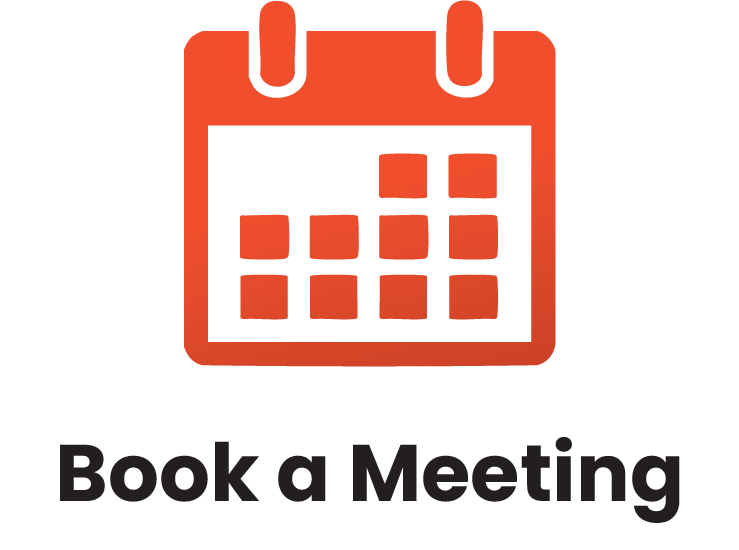Interactive training sessions led by experienced facilitators.
What is In-Person, Instructor-Led Training?
Our in-person training is delivered by a live facilitator who works directly with your team at your location. It’s our most popular format because it allows for real-time interaction, hands-on learning, and direct support.
Every session is tailored to your team’s specific goals, industry, and challenges—no generic, one-size-fits-all programs. Whether it’s a single session or a full training series, we design the experience to be relevant, practical, and fully aligned with your needs.
What is Live Webinar Training?
Live webinars are facilitator-led training sessions delivered online in real time. They’re ideal for teams working in different locations or with busy schedules.
This format offers shorter, more frequent sessions that are easy to coordinate—making it a convenient option for organizations with remote or distributed teams.
What is Virtual Classroom Training?
Virtual Classroom training is live, instructor-led training delivered online. It offers the same interactive experience as in-person sessions, with real-time discussions, group activities, and instructor feedback.
It’s a flexible option for organizations that want to reduce travel, save costs, or better fit training into busy schedules.
What is a Lunch & Learn Session?
Lunch & Learn sessions are short, facilitator-led training sessions delivered in person or online—typically during the lunch hour. They focus on specific topics or skills and offer a quick, engaging way to learn without a full-day commitment.
These sessions can be offered as one-time events or as part of a series, making them a great option for ongoing, bite-sized learning.
Online Learning
Enjoy our self-paced option and learn from anywhere!
$425.00 USD
Conducting Effective Performance Reviews
Effective performance reviews are an essential component of employee development. The performance review meeting is an important aspect of career planning, and the outcomes of the meeting should be known to the employee and supervisor before the meeting actually takes place. Remember what the German philosopher Goethe said: “Treat people as if they were what they ought to be and you help them become what they are capable of being.”
Setting goals and objectives to aim for will give both supervisors and employees a focus, and is one of the key aspects to meeting overall company objectives. Supervisors must also learn how to give feedback, both positive and negative, on a regular and timely basis so that employees can grow and develop. Performance appraisals involve all these activities.
LEARNING OBJECTIVES
Learning Objectives
This three-day Effective Performance Review workshop will teach participants:
- To recognize the importance of having a performance review process for employees.
- How to work with employees to set performance standards and goals.
- Skills in observing, giving feedback, listening, and asking questions.
- An effective interview process and the opportunity to practice the process in a supportive atmosphere.
- How to make the performance review legally defensible.


COURSE OUTLINE
To start, participants will discuss what performance appraisals are and why they are important. The importance of building trust will also be covered.
Errors We Make
This session will explore the three most common errors made during performance appraisals.
Types of Performance Reviews
Next, participants will learn about the most common types of performance appraisals: formal reviews, informal reviews, probationary reviews, and 360-degree reviews.
The Performance Management Process
To begin, participants will look at the four-stage performance management process through a lecture. Then, participants will work in small groups to review some sample appraisal forms.
Goals with SPIRIT
During this session, participants will learn about the SPIRIT acronym for goals. They will also learn about setting short-term and long-term goals.
The Performance Management Cycle
This session will explore the first two stages of the performance management cycle: the basis for review and performance standards. BAR’s and KRA’s will also be discussed briefly.
Setting Standards
Participants will learn about the importance of standards through a short exercise.
Creating a Performance Development Plan
Another key element in the performance management cycle is a performance development plan. Participants will learn about the components of this type of plan during this session.
Feedback and Communication
This session will provide participants with some basic feedback and communication tips.
Listening Skills
Next, participants will take a closer look at listening skills.
Communication Strategies
In this session, participants will learn about asking good questions, probing techniques, and body language.
Giving Feedback
This session will cover the six characteristics of effective feedback. To reinforce these concepts, participants will apply these characteristics to three case studies.
Accepting Criticism
Next, participants will learn how to accept criticism graciously.
Planning the Interview
This session will look at some things that participants should do before delivering the performance appraisal.
The Interview
In this session, participants will learn a basic interview format and practice it through a role play.
Goal Setting Role Play
Day Three will start with a role play on the first stage of the performance appraisal process: goal setting. This role play will be followed by discussion and feedback from the trainer and other participants.
Providing Feedback
This session will ask participants to complete a role play on the second stage of the performance appraisal process: providing feedback.
Coaching
Next, participants will learn about the third stage of the performance appraisal process: coaching. Participants will also practice coaching in a role play.
Appraisal Preparation
In this session, participants will prepare for a mock appraisal.
The Interview
Next, participants will conclude the performance appraisal process with a mock interview.
Maintaining Performance
Once an employee has achieved a particular level of performance, we usually want them to maintain that level. This session will explore some ways of doing that.
Handling Performance Problems
During this session, participants will learn what to do if an employee is not achieving a particular level of performance.
The Part Where Someone Gets Fired
In this session, participants will learn what steps to take when someone needs to be let go. Participants will also have an opportunity to practice their skills in a role play.
Pre-Assignment Review
To sum up the past three days, participants will look at their pre-assignment, identify areas of improvement, and develop an action plan.
Performance Management Checklists
To conclude the workshop, participants will review some checklists that they can use during the performance management process.


















